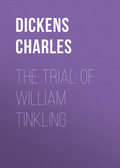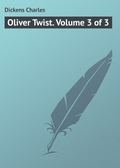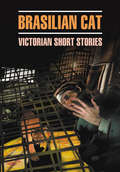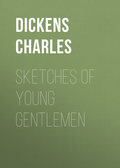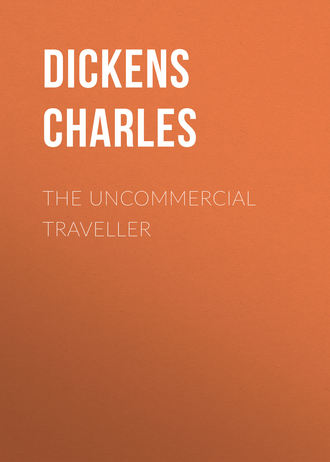
Чарльз Диккенс
The Uncommercial Traveller
But I made it out to be indubitable that the owners of these lead-mills honestly and sedulously try to reduce the dangers of the occupation to the lowest point.
A washing-place is provided for the women (I thought there might have been more towels), and a room in which they hang their clothes, and take their meals, and where they have a good fire-range and fire, and a female attendant to help them, and to watch that they do not neglect the cleansing of their hands before touching their food. An experienced medical attendant is provided for them, and any premonitory symptoms of lead-poisoning are carefully treated. Their teapots and such things were set out on tables ready for their afternoon meal, when I saw their room; and it had a homely look. It is found that they bear the work much better than men: some few of them have been at it for years, and the great majority of those I observed were strong and active. On the other hand, it should be remembered that most of them are very capricious and irregular in their attendance.
American inventiveness would seem to indicate that before very long white-lead may be made entirely by machinery. The sooner, the better. In the meantime, I parted from my two frank conductors over the mills, by telling them that they had nothing there to be concealed, and nothing to be blamed for. As to the rest, the philosophy of the matter of lead-poisoning and workpeople seems to me to have been pretty fairly summed up by the Irishwoman whom I quoted in my former paper: ‘Some of them gets lead-pisoned soon, and some of them gets lead-pisoned later, and some, but not many, niver; and ’tis all according to the constitooshun, sur; and some constitooshuns is strong and some is weak.’ Retracing my footsteps over my beat, I went off duty.
XXXVI
A FLY-LEAF IN A LIFE
Once upon a time (no matter when), I was engaged in a pursuit (no matter what), which could be transacted by myself alone; in which I could have no help; which imposed a constant strain on the attention, memory, observation, and physical powers; and which involved an almost fabulous amount of change of place and rapid railway travelling. I had followed this pursuit through an exceptionally trying winter in an always trying climate, and had resumed it in England after but a brief repose. Thus it came to be prolonged until, at length – and, as it seemed, all of a sudden – it so wore me out that I could not rely, with my usual cheerful confidence, upon myself to achieve the constantly recurring task, and began to feel (for the first time in my life) giddy, jarred, shaken, faint, uncertain of voice and sight and tread and touch, and dull of spirit. The medical advice I sought within a few hours, was given in two words: ‘instant rest.’ Being accustomed to observe myself as curiously as if I were another man, and knowing the advice to meet my only need, I instantly halted in the pursuit of which I speak, and rested.
My intention was, to interpose, as it were, a fly-leaf in the book of my life, in which nothing should be written from without for a brief season of a few weeks. But some very singular experiences recorded themselves on this same fly-leaf, and I am going to relate them literally. I repeat the word: literally.
My first odd experience was of the remarkable coincidence between my case, in the general mind, and one Mr. Merdle’s as I find it recorded in a work of fiction called Little Dorrit. To be sure, Mr. Merdle was a swindler, forger, and thief, and my calling had been of a less harmful (and less remunerative) nature; but it was all one for that.
Here is Mr. Merdle’s case:
‘At first, he was dead of all the diseases that ever were known, and of several bran-new maladies invented with the speed of Light to meet the demand of the occasion. He had concealed a dropsy from infancy, he had inherited a large estate of water on the chest from his grandfather, he had had an operation performed upon him every morning of his life for eighteen years, he had been subject to the explosion of important veins in his body after the manner of fireworks, he had had something the matter with his lungs, he had had something the matter with his heart, he had had something the matter with his brain. Five hundred people who sat down to breakfast entirely uninformed on the whole subject, believed before they had done breakfast, that they privately and personally knew Physician to have said to Mr. Merdle, “You must expect to go out, some day, like the snuff of a candle;” and that they knew Mr. Merdle to have said to Physician, “A man can die but once.” By about eleven o’clock in the forenoon, something the matter with the brain, became the favourite theory against the field; and by twelve the something had been distinctly ascertained to be “Pressure.”
‘Pressure was so entirely satisfactory to the public mind, and seemed to make every one so comfortable, that it might have lasted all day but for Bar’s having taken the real state of the case into Court at half-past nine. Pressure, however, so far from being overthrown by the discovery, became a greater favourite than ever. There was a general moralising upon Pressure, in every street. All the people who had tried to make money and had not been able to do it, said, There you were! You no sooner began to devote yourself to the pursuit of wealth, than you got Pressure. The idle people improved the occasion in a similar manner. See, said they, what you brought yourself to by work, work, work! You persisted in working, you overdid it, Pressure came on, and you were done for! This consideration was very potent in many quarters, but nowhere more so than among the young clerks and partners who had never been in the slightest danger of overdoing it. These, one and all declared, quite piously, that they hoped they would never forget the warning as long as they lived, and that their conduct might be so regulated as to keep off Pressure, and preserve them, a comfort to their friends, for many years.’
Just my case – if I had only known it – when I was quietly basking in the sunshine in my Kentish meadow!
But while I so rested, thankfully recovering every hour, I had experiences more odd than this. I had experiences of spiritual conceit, for which, as giving me a new warning against that curse of mankind, I shall always feel grateful to the supposition that I was too far gone to protest against playing sick lion to any stray donkey with an itching hoof. All sorts of people seemed to become vicariously religious at my expense. I received the most uncompromising warning that I was a Heathen: on the conclusive authority of a field preacher, who, like the most of his ignorant and vain and daring class, could not construct a tolerable sentence in his native tongue or pen a fair letter. This inspired individual called me to order roundly, and knew in the freest and easiest way where I was going to, and what would become of me if I failed to fashion myself on his bright example, and was on terms of blasphemous confidence with the Heavenly Host. He was in the secrets of my heart, and in the lowest soundings of my soul – he! – and could read the depths of my nature better than his A B C, and could turn me inside out, like his own clammy glove. But what is far more extraordinary than this – for such dirty water as this could alone be drawn from such a shallow and muddy source – I found from the information of a beneficed clergyman, of whom I never heard and whom I never saw, that I had not, as I rather supposed I had, lived a life of some reading, contemplation, and inquiry; that I had not studied, as I rather supposed I had, to inculcate some Christian lessons in books; that I had never tried, as I rather supposed I had, to turn a child or two tenderly towards the knowledge and love of our Saviour; that I had never had, as I rather supposed I had had, departed friends, or stood beside open graves; but that I had lived a life of ‘uninterrupted prosperity,’ and that I needed this ‘check, overmuch,’ and that the way to turn it to account was to read these sermons and these poems, enclosed, and written and issued by my correspondent! I beg it may be understood that I relate facts of my own uncommercial experience, and no vain imaginings. The documents in proof lie near my hand.
Another odd entry on the fly-leaf, of a more entertaining character, was the wonderful persistency with which kind sympathisers assumed that I had injuriously coupled with the so suddenly relinquished pursuit, those personal habits of mine most obviously incompatible with it, and most plainly impossible of being maintained, along with it. As, all that exercise, all that cold bathing, all that wind and weather, all that uphill training – all that everything else, say, which is usually carried about by express trains in a portmanteau and hat-box, and partaken of under a flaming row of gas-lights in the company of two thousand people. This assuming of a whole case against all fact and likelihood, struck me as particularly droll, and was an oddity of which I certainly had had no adequate experience in life until I turned that curious fly-leaf.
My old acquaintances the begging-letter writers came out on the fly-leaf, very piously indeed. They were glad, at such a serious crisis, to afford me another opportunity of sending that Post-office order. I needn’t make it a pound, as previously insisted on; ten shillings might ease my mind. And Heaven forbid that they should refuse, at such an insignificant figure, to take a weight off the memory of an erring fellow-creature! One gentleman, of an artistic turn (and copiously illustrating the books of the Mendicity Society), thought it might soothe my conscience, in the tender respect of gifts misused, if I would immediately cash up in aid of his lowly talent for original design – as a specimen of which he enclosed me a work of art which I recognized as a tracing from a woodcut originally published in the late Mrs. Trollope’s book on America, forty or fifty years ago. The number of people who were prepared to live long years after me, untiring benefactors to their species, for fifty pounds apiece down, was astonishing. Also, of those who wanted bank-notes for stiff penitential amounts, to give away: – not to keep, on any account.
Divers wonderful medicines and machines insinuated recommendations of themselves into the fly-leaf that was to have been so blank. It was specially observable that every prescriber, whether in a moral or physical direction, knew me thoroughly – knew me from head to heel, in and out, through and through, upside down. I was a glass piece of general property, and everybody was on the most surprisingly intimate terms with me. A few public institutions had complimentary perceptions of corners in my mind, of which, after considerable self-examination, I have not discovered any indication. Neat little printed forms were addressed to those corners, beginning with the words: ‘I give and bequeath.’
Will it seem exaggerative to state my belief that the most honest, the most modest, and the least vain-glorious of all the records upon this strange fly-leaf, was a letter from the self-deceived discoverer of the recondite secret ‘how to live four or five hundred years’? Doubtless it will seem so, yet the statement is not exaggerative by any means, but is made in my serious and sincere conviction. With this, and with a laugh at the rest that shall not be cynical, I turn the Fly-leaf, and go on again.
XXXVII
A PLEA FOR TOTAL ABSTINENCE
One day this last Whitsuntide, at precisely eleven o’clock in the forenoon, there suddenly rode into the field of view commanded by the windows of my lodging an equestrian phenomenon. It was a fellow-creature on horseback, dressed in the absurdest manner. The fellow-creature wore high boots; some other (and much larger) fellow-creature’s breeches, of a slack-baked doughy colour and a baggy form; a blue shirt, whereof the skirt, or tail, was puffily tucked into the waist-band of the said breeches; no coat; a red shoulder-belt; and a demi-semi-military scarlet hat, with a feathered ornament in front, which, to the uninstructed human vision, had the appearance of a moulting shuttlecock. I laid down the newspaper with which I had been occupied, and surveyed the fellow-man in question with astonishment. Whether he had been sitting to any painter as a frontispiece for a new edition of ‘Sartor Resartus;’ whether ‘the husk or shell of him,’ as the esteemed Herr Teufelsdroch might put it, were founded on a jockey, on a circus, on General Garibaldi, on cheap porcelain, on a toy shop, on Guy Fawkes, on waxwork, on gold-digging, on Bedlam, or on all, – were doubts that greatly exercised my mind. Meanwhile, my fellow-man stumbled and slided, excessively against his will, on the slippery stones of my Covent-garden street, and elicited shrieks from several sympathetic females, by convulsively restraining himself from pitching over his horse’s head. In the very crisis of these evolutions, and indeed at the trying moment when his charger’s tail was in a tobacconist’s shop, and his head anywhere about town, this cavalier was joined by two similar portents, who, likewise stumbling and sliding, caused him to stumble and slide the more distressingly. At length this Gilpinian triumvirate effected a halt, and, looking northward, waved their three right hands as commanding unseen troops, to ‘Up, guards! and at ’em.’ Hereupon a brazen band burst forth, which caused them to be instantly bolted with to some remote spot of earth in the direction of the Surrey Hills.
Judging from these appearances that a procession was under way, I threw up my window, and, craning out, had the satisfaction of beholding it advancing along the streets. It was a Teetotal procession, as I learnt from its banners, and was long enough to consume twenty minutes in passing. There were a great number of children in it, some of them so very young in their mothers’ arms as to be in the act of practically exemplifying their abstinence from fermented liquors, and attachment to an unintoxicating drink, while the procession defiled. The display was, on the whole, pleasant to see, as any good-humoured holiday assemblage of clean, cheerful, and well-conducted people should be. It was bright with ribbons, tinsel, and shoulder-belts, and abounded in flowers, as if those latter trophies had come up in profusion under much watering. The day being breezy, the insubordination of the large banners was very reprehensible. Each of these being borne aloft on two poles and stayed with some half-dozen lines, was carried, as polite books in the last century used to be written, by ‘various hands,’ and the anxiety expressed in the upturned faces of those officers, – something between the anxiety attendant on the balancing art, and that inseparable from the pastime of kite-flying, with a touch of the angler’s quality in landing his scaly prey, – much impressed me. Suddenly, too, a banner would shiver in the wind, and go about in the most inconvenient manner. This always happened oftenest with such gorgeous standards as those representing a gentleman in black, corpulent with tea and water, in the laudable act of summarily reforming a family, feeble and pinched with beer. The gentleman in black distended by wind would then conduct himself with the most unbecoming levity, while the beery family, growing beerier, would frantically try to tear themselves away from his ministration. Some of the inscriptions accompanying the banners were of a highly determined character, as ‘We never, never will give up the temperance cause,’ with similar sound resolutions rather suggestive to the profane mind of Mrs. Micawber’s ‘I never will desert Mr. Micawber,’ and of Mr. Micawber’s retort, ‘Really, my dear, I am not aware that you were ever required by any human being to do anything of the sort.’
At intervals, a gloom would fall on the passing members of the procession, for which I was at first unable to account. But this I discovered, after a little observation, to be occasioned by the coming on of the executioners, – the terrible official beings who were to make the speeches by-and-by, – who were distributed in open carriages at various points of the cavalcade. A dark cloud and a sensation of dampness, as from many wet blankets, invariably preceded the rolling on of the dreadful cars containing these headsmen; and I noticed that the wretched people who closely followed them, and who were in a manner forced to contemplate their folded arms, complacent countenances, and threatening lips, were more overshadowed by the cloud and damp than those in front. Indeed, I perceived in some of these so moody an implacability towards the magnates of the scaffold, and so plain a desire to tear them limb from limb, that I would respectfully suggest to the managers the expediency of conveying the executioners to the scene of their dismal labours by unfrequented ways, and in closely-tilted carts, next Whitsuntide.
The procession was composed of a series of smaller processions, which had come together, each from its own metropolitan district. An infusion of allegory became perceptible when patriotic Peckham advanced. So I judged, from the circumstance of Peckham’s unfurling a silken banner that fanned heaven and earth with the words, ‘The Peckham Lifeboat.’ No boat being in attendance, though life, in the likeness of ‘a gallant, gallant crew,’ in nautical uniform, followed the flag, I was led to meditate on the fact that Peckham is described by geographers as an inland settlement, with no larger or nearer shore-line than the towing-path of the Surrey Canal, on which stormy station I had been given to understand no lifeboat exists. Thus I deduced an allegorical meaning, and came to the conclusion, that if patriotic Peckham picked a peck of pickled poetry, this was the peck of pickled poetry which patriotic Peckham picked.
I have observed that the aggregate procession was on the whole pleasant to see. I made use of that qualified expression with a direct meaning, which I will now explain. It involves the title of this paper, and a little fair trying of teetotalism by its own tests. There were many people on foot, and many people in vehicles of various kinds. The former were pleasant to see, and the latter were not pleasant to see; for the reason that I never, on any occasion or under any circumstances, have beheld heavier overloading of horses than in this public show. Unless the imposition of a great van laden with from ten to twenty people on a single horse be a moderate tasking of the poor creature, then the temperate use of horses was immoderate and cruel. From the smallest and lightest horse to the largest and heaviest, there were many instances in which the beast of burden was so shamefully overladen, that the Society for the Prevention of Cruelty to Animals have frequently interposed in less gross cases.
Now, I have always held that there may be, and that there unquestionably is, such a thing as use without abuse, and that therefore the total abolitionists are irrational and wrong-headed. But the procession completely converted me. For so large a number of the people using draught-horses in it were so clearly unable to use them without abusing them, that I perceived total abstinence from horseflesh to be the only remedy of which the case admitted. As it is all one to teetotalers whether you take half a pint of beer or half a gallon, so it was all one here whether the beast of burden were a pony or a cart-horse. Indeed, my case had the special strength that the half-pint quadruped underwent as much suffering as the half-gallon quadruped. Moral: total abstinence from horseflesh through the whole length and breadth of the scale. This pledge will be in course of administration to all teetotal processionists, not pedestrians, at the publishing office of ‘All the Year Round,’ on the 1st day of April, 1870.
Observe a point for consideration. This procession comprised many persons in their gigs, broughams, tax-carts, barouches, chaises, and what not, who were merciful to the dumb beasts that drew them, and did not overcharge their strength. What is to be done with those unoffending persons? I will not run amuck and vilify and defame them, as teetotal tracts and platforms would most assuredly do, if the question were one of drinking instead of driving: I merely ask what is to be done with them! The reply admits of no dispute whatever. Manifestly, in strict accordance with teetotal doctrines, THEY must come in too, and take the total abstinence from horseflesh pledge. It is not pretended that those members of the procession misused certain auxiliaries which in most countries and all ages have been bestowed upon man for his use, but it is undeniable that other members of the procession did. Teetotal mathematics demonstrate that the less includes the greater; that the guilty include the innocent, the blind the seeing, the deaf the hearing, the dumb the speaking, the drunken the sober. If any of the moderate users of draught-cattle in question should deem that there is any gentle violence done to their reason by these elements of logic, they are invited to come out of the procession next Whitsuntide, and look at it from my window.



